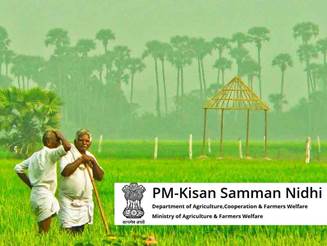Free Courses Sale ends Soon, Get It Now


Free Courses Sale ends Soon, Get It Now



Disclaimer: Copyright infringement not intended.
Context
About PM Kisan Samman Nidhi Yojana:
Exclusions
Farmer as well as any member of the family belonging to the following categories are not eligible for PM KISAN:
There is an option to refund the received amount if one is not an ineligible farmer.
Challenges in PM KISAN Scheme
Further Concern
Government’s stance
Evaluation
Way Ahead
Proactive role of Banks
Strengthening IT backbone
Targeting benefits and updation of land records
Addressing structural issues
© 2024 iasgyan. All right reserved